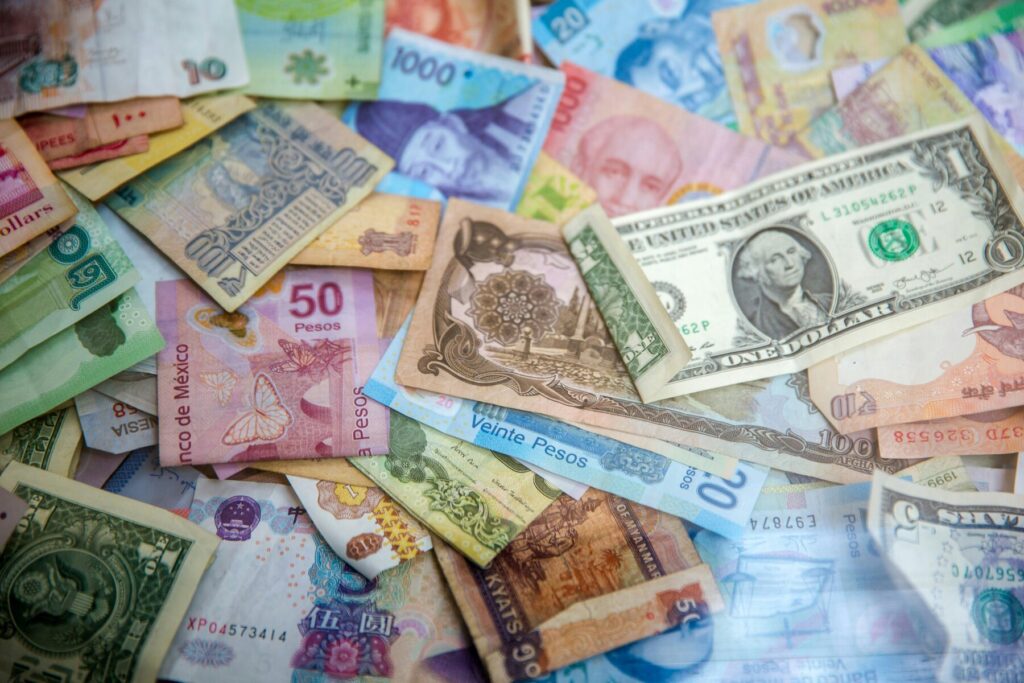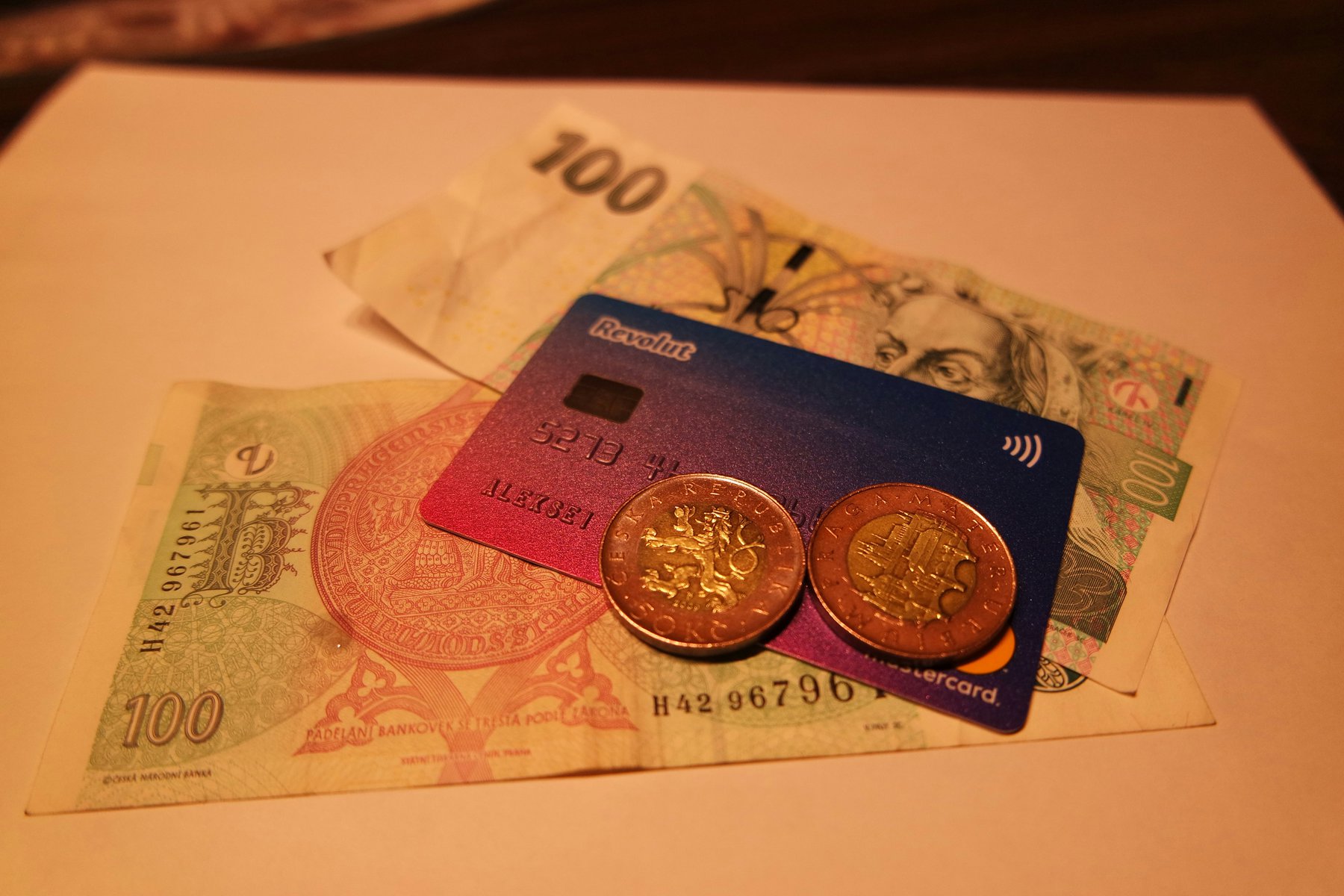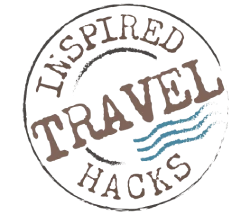
The Best Money Exchange Tips When Travelling Aboard

This blog has been written to give you the best money exchange tips when you travel abroad. From how to find the best exchange rates to avoiding hidden fees and knowing where the best places to exchange your cash. So let’s get started!

Plan Ahead – Preparing To Exchange Your Money
A little pre-trip preparation really helps you get organised when it comes to all things around travel money. Here’s what to do to prepare:
Research Your Destination’s Currency and Exchange Rates
Always do some research on the local currency of your destination. Take note of the current exchange rates so you know what to expect when converting your money. Tools like online currency converters can give you real-time insights. Understanding the value of the local currency will also help you plan your budget more effectively and avoid overpaying on purchases or money exchange.
Remember: When checking real-time money exchange rates, you’ll be shown the spot price. The spot price is the rate the banks and financial institutions trade at. However, you won’t get this rate when exchanging your money, as it excludes fees and provider costs, so use only as a guideline.
Order Foreign Currency in Advance
As banks and online services often offer competitive rates, so you can get a bit of money exchanged in advance. This ensure that you have some local cash on hand the moment you arrive. Be sure to compare exchange rates and fees from a few places first, to get the best deal.
Consider Prepaid Cards
If you want more flexibility, think about getting a prepaid card currency card. These cards allow you to load and store multiple currencies at once, often at favourable exchange rates. They’re a great option if you’re visiting multiple countries or want to avoid carrying too much cash. Plus, prepaid currency cards often come with added perks, such as no foreign transaction fees or the ability to lock in exchange rates in advance.
Check Your Credit Card Transaction Fees
Before travelling, always check your credit card’s foreign transaction fees, as these can add up quickly when making purchases or withdrawing cash abroad. Many providers charge a percentage (often 2-3%) on top of the purchase amount for every transaction.
To avoid these extra costs, consider applying for a travel-friendly credit card that waives foreign transaction fees. If your current card isn’t travel-friendly, contact your bank to clarify all fees and associated costs, so you’re not caught off guard during your trip.
Pack a Mix of Cash and Cards
While cards are convenient, there are times when cash is king, like when visiting remote areas or paying in markets where card payments aren’t generally accepted or for small items. Aim to carry a balanced mix of cash and cards to cover all situations. Keep some emergency cash in USD, EUR, or GBP (depending on your region), as these are widely accepted and easier to exchange in most parts of the world. And don’t forget to notify your bank about your travel plans to avoid any issues with your cards abroad.

Where To Exchange Money – Best and Worst Options
Finding the best place to exchange currency can save you from excessive fees and poor exchange rates while travelling. Here’s a breakdown of where you should and shouldn’t exchange your money.
Best Money Exchange Options
- Banks
Banks often offer competitive exchange rates with minimal markup. Also, as banks are regulated, this makes them a a trusted source for safe money exchanges. - ATMs Abroad
Using ATMs at your destination can provide mid-market exchange rates, which are usually better than cash exchange services. Opt for ATMs associated with major banks to avoid inflated fees. Always select the option to be charged in the local currency to prevent dynamic currency conversion fees applied by the bank back home. - Online Currency Exchange Platforms
Services like Wise and Revolut have revolutionised currency exchange. They allow you to convert money at real mid-market rates with transparent, low fees. These online platforms often come with multi-currency cards, enabling you to pay directly in foreign currency or withdraw cash from ATMs without hefty charges.
Worst Money Exchange Options
- Airport Kiosks
Currency exchange counters at airports are notorious for offering some of the worst rates. Their convenience comes at a steep price, with high fees and rates. - Hotels
While it may seem convenient to exchange currency at your hotel, the exchange rates are usually poor, and service fees can make this option highly expensive. - Tourist Hotspots
Currency exchange booths located in popular tourist areas often target travellers with little time to compare rates, leading to inflated fees and unfavourable exchange rates. Avoid exchanging money in these locations.

How To Get The Best Exchange Rates
Below are proven tips to ensure you secure the best exchange rates and avoid unnecessary fees.
1. Avoiding Dynamic Currency Conversion (DCC)
Dynamic Currency Conversion (DCC) often comes as a tempting option on card payments and ATM transactions, letting you pay in your home currency instead of the local one. Avoid this option at all costs. While it may look straightforward, DCC typically involves inflated exchange rates and additional fees. To steer clear of DCC, always choose to pay in the local currency when prompted at checkout or cash machines.
2. Using Credit Cards with No Foreign Transaction Fees
Credit cards tailored for travel are a great way to save on exchanges. Look for cards that waive foreign transaction fees. These can save you 1%-3% on every overseas purchase. Additionally, many cards offer rewards like miles or cashback on foreign spending, adding extra value.
3. Avoiding Weekend Currency Exchanges
Currency markets are closed on weekends, so many currency exchange places apply markups to account for potential fluctuations when markets reopen on Monday. This often results in less favourable rates. To get the best rates, aim to exchange your money during weekdays when rates are closer to the mid-market level. Alternatively, use multi-currency cards like Wise or Revolut to secure competitive rates in advance and avoid any weekend surcharges.

Tools & Apps To Make Money Exchange Easier
Here are some practical options to make your money exchange experience smoother while overseas.
1. Currency Converter Apps for Real-Time Rates
Before making purchases or exchanging money, real-time currency converter apps can be your best friend. They allow you to check the most up to date rates and make sure you are calculating the conversion correctly. Of course these rates will not be the exact rate you will receive; but will give you an idea.
- XE offers up-to-date rates for nearly every currency in the world and allows you to monitor fluctuations easily.
- OANDA provides live rates and a history of rate changes, which is perfect if you’re tracking adjustments for a better deal.
- Many apps also function offline, letting you check conversions even without internet access.
2. Travel-Friendly Banking Apps and Multi-Currency Wallets
Travel-friendly banking apps and wallets streamline currency management, allowing you to hold, exchange, and spend multiple currencies seamlessly.
- Revolut and Wise are among the most popular choices, offering competitive exchange rates and an easy way to handle multiple currencies.
- Currensea connects directly to your UK bank account, eliminating the need for pre-loading.
- These platforms also notify you of transactions in real time, so you can track exactly how much you’re spending abroad without surprises.

What To Do With Left Over Money
Finding yourself with leftover foreign currency after a trip is common. Instead of letting it gather dust, here’s what to do.
Exchange It Back to Your Home Currency
Many banks and currency exchange providers offer great buy-back services, and it really is a better option just to exchange money back instead of it sitting in a drawer.
Save It for Future Trips
Of course, if it is a destination that you frequently travel or are planning to visit again soon, then save it for your next trip.
Donate It to Charity or Use It at the Airport
Finally that loose change in your pocket can go to a good cause. Many airports have donation bins dedicated to charities.
Also, you can also use it up at the airport on your way home. Some places allow you to pay in a mix of local currency and the rest on card. But ask first if this is possible.

So To Wrap Up On the Best Money Exchange Tips When Travelling Aboard…
Money exchange doesn’t have to be complicated. By researching exchange rates, planning ahead, and choosing the right tools like prepaid cards and travel apps, you can avoid unnecessary fees and make the most of your budget. Understanding when and where to exchange currency, avoiding pitfalls like weekend markups and dynamic currency conversion, and packing a balanced mix of cash and cards ensures you’re ready for any spending situation.
For some more great travel hacks, head to our dedicated Travel Hacks page.

